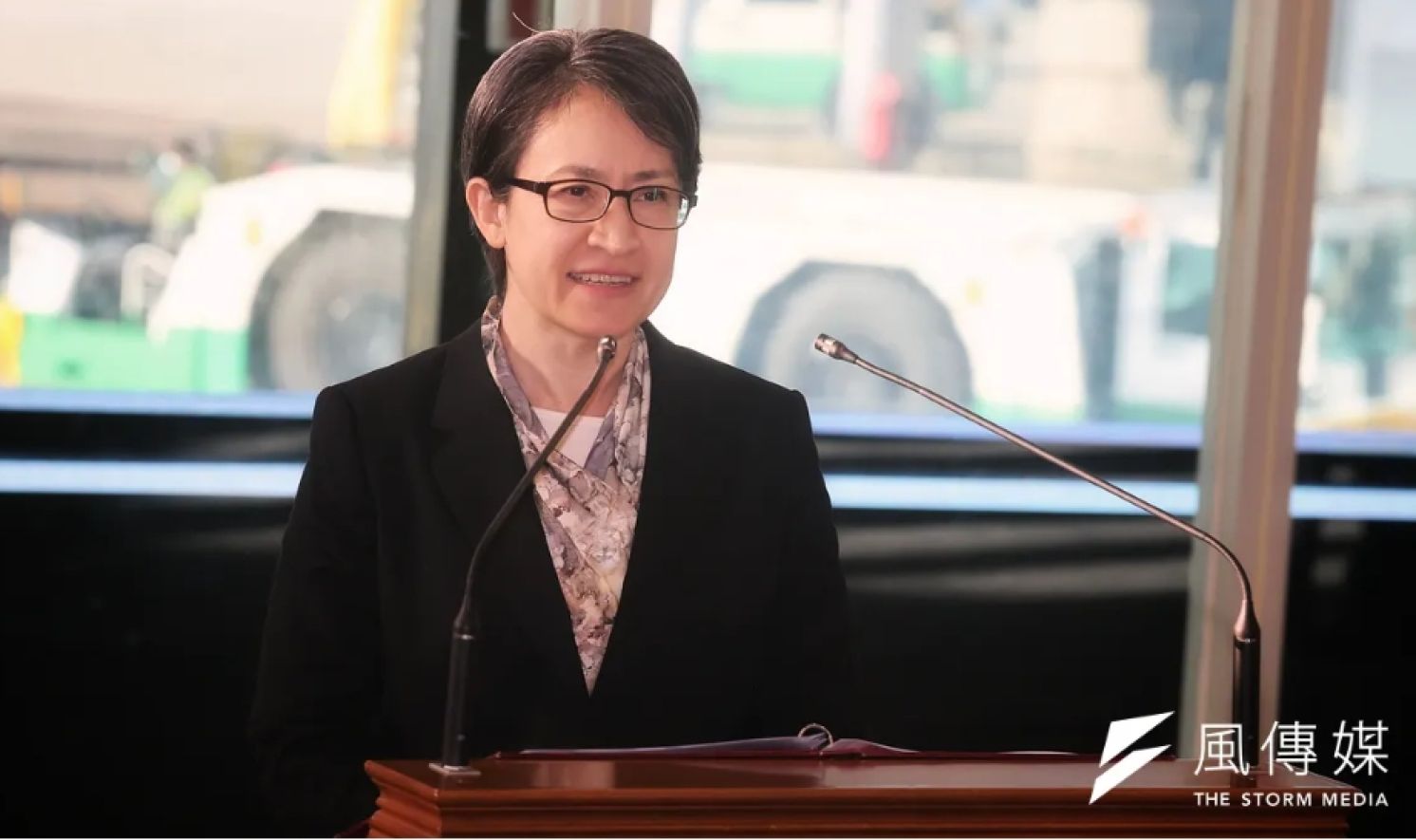
European Diplomatic Breakthrough Mere Spectacle, Diplomatic Challenges Unchanged
China Times Editorial, November 12, 2025
The Office of the President, Executive Yuan, ruling Democratic Progressive Party (DPP), and DPP supporters have recently been aggressively touting Vice President Hsiao Bi-khim’s speech at the European Parliament as a major diplomatic breakthrough. Coupled with former President Tsai Ing-wen’s visit and speech in Germany, as well as Minister of Foreign Affairs Lin Chia-lung’s recent trip to Europe, it appears as if Taiwan’s diplomacy has achieved significant progress—opening a new “European front” beyond the United States. But a closer look at the facts shows that this is nothing more than a marketing tactic that confuses the public and amplifies propaganda—a firework show of diplomacy funded at great expense.
Ms. Hsiao is the sitting vice president. If she had indeed been formally invited to address the European Parliament, it would certainly carry great significance for Taiwan. The DPP has repeatedly conveyed such “exciting” messages to the public. But whether there has been a diplomatic breakthrough must be assessed objectively. The Inter-Parliamentary Alliance on China (IPAC) is a non-governmental organization composed of cross-party parliamentarians from 43 countries and the European Union. Its mission is anti-China—and at times even anti-Chinese. Its donors include the U.S. National Endowment for Democracy (NED), the Soros Foundation, Taiwan’s own Democratic Foundation, and the “Hello Taiwan” Foundation funded by Taiwanese Americans. However, since President Donald Trump of the United States took office, NED’s budget was cut.
This time, two European Parliament members—Reinhard Bütikofer and Mikuláš Peksa, who serve as IPAC’s EU co-chairs—rented a meeting room in the European Parliament building and invited Vice President Hsiao to speak. Can this be considered a formal address to the European Parliament? The venue may have been inside the EP building, but the event was not organized by the Parliament, nor was it an official EP invitation or decision. What exactly is the DPP celebrating?
It is common for parliamentarians to rent meeting rooms to host their own events, but such activities cannot be attributed to the European Parliament itself. In 1997, then-Minister of Foreign Affairs Chang Hsiao-yen was formally invited to speak at the European Parliament. Compared with that, Vice President Hsiao’s event pales in significance. The only true breakthrough this time is that Belgium, home of the European Parliament, issued her a visa allowing the trip—an act of goodwill. However, whether Beijing will retaliate against Belgium and prompt European countries to tighten their Taiwan policies remains to be seen.
Vice President Hsiao’s “minor breakthrough” is flashy but insubstantial—an individual sound-and-light performance without any real improvement in Taiwan’s foreign relations. For instance, the number of Taiwan’s diplomatic allies has fallen to just 12; Communist China continues to intensify its pressure on Taiwan’s international legal status; and Taiwan remains excluded from the World Health Assembly (WHA). On these issues, the government has presented no effective strategy. Meanwhile, President Lai Ching-te has twice sought transit through the continental United States on his visit to diplomatic allies and was rejected both times. In 2013, then-President Ma Ying-jeou attended Pope Francis’ inauguration ceremony in Rome and had friendly conversations with leaders like Vice President Joe Biden of the United States, Chancellor Angela Merkel of Germany. But in May of this year, when Pope Leo XIV was inaugurated, Taiwan was represented only by former Vice President Chen Chien-jen. After more than a year in office, President Lai remains unable to travel abroad, vividly illustrating Taiwan’s diplomatic isolation.
Whether it is Vice President Hsiao’s speech or former President Tsai’s visit to Germany, these are minor accomplishments at best. The more fundamental diplomatic challenges show no sign of receiving real attention from the DPP administration. First, Mr. Trump has abandoned the values of democratic alliances and is focused solely on “America First.” Taiwan’s value is now reduced largely to the rapidly hollowing leverage of the Taiwan Semiconductor Manufacturing Company (TSMC). Beyond continuously providing support, the DPP has no other approach. Taiwan has become a pawn in U.S.-China rivalry; regardless of whether Mr. Trump wins or loses, Taiwan risks ending up as the loser on the geopolitical menu.
As the United States becomes increasingly unreliable, the government appears to be shifting toward Europe. Strengthening ties with European nations to break diplomatic isolation is indeed a necessary direction. But in reality, what Europe cares about most is ending the Russia-Ukraine war as soon as possible and bolstering European security to deter future Russian ambitions. Russia has already stated that China must participate in maintaining future peace in Ukraine. Given China’s military, technological, economic, and rare-earth strength—as well as its influence over Russia—it is foreseeable that European countries will not be willing to excessively provoke the mainland for Taiwan’s sake. This is why Taiwan’s representative office in Estonia has had its name stuck for a year, and in South Africa, Taiwan’s representative office was downgraded and even removed from the capital—clear signs of Taiwan’s increasingly difficult international position.
Ultimately, Taiwan’s diplomatic deadlock stems from pressure from mainland China. While Taiwan should cultivate relationships with countries around the world to break through this blockade, it must also use strategic means to ease cross-strait tensions to secure space and time for the nation’s survival. Taiwan’s most successful diplomatic period occurred under President Ma, during which cross-strait relations were carefully managed. Since the DPP came to power in 2016, diplomacy has slipped into worsening isolation. Does the DPP truly not see where the path forward lies?
From: https://www.chinatimes.com/opinion/20251112004233-262101?chdtv